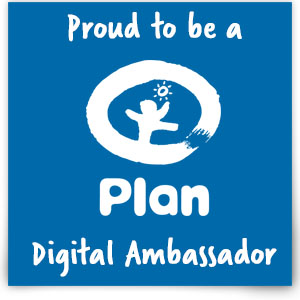10 actions everyone can take to support gender equality

IWD 2016 in Nepal
I love the buzz surrounding International Women’s Day (IWD) each year: the flurry of events and speeches; the reports on progress made towards gender equality, news of initiatives focused on closing the various gender gaps (pay, pension, data, etc); and the spotlight that IWD shines on exceptional and inspiring women who are making waves in their fields and taking the world by storm.
In the Civil Service where I work, it feels like IWD has turned into a whole week of activities, events and celebrations and I was lucky to be speaking in no fewer than 4 separate IWD events this year! While I often felt like the odd-one-out when I worked in the male-dominated Tech industry, I’ve found my element in the Civil Service, where I have a female Permanent Secretary (similar to a CEO), a female Director, and I’m surrounded by many other female role models from whom to learn and feel empowered.
Below are the 10 proactive actions I recommended this week to colleagues (both men and women) at one of the IWD events, as an aid to help those who wanted to embrace the #ChooseToChallenge theme of 2021’s IWD. Vocally stating that you want to challenge gender inequality is better than saying nothing, but it needs to be accompanied by action. Choose any one (or more) of the actions below and know that you’re contributing to make society a fairer place for all genders, and particularly for the women in your life, and future generations of women to come.
This post contains some affiliate links and I may earn a small commission when you click on those links, at no additional cost to you, which helps support the running of this blog. As an Amazon Affiliate, I earn from qualifying purchases.
___________________
10 actions anyone can take to support gender equality
Inside work:
- Promote visibility of women & equal representation in team meetings, both for individual development and for more junior women to see relatable female role-models. This goes beyond asking a junior woman to chair the meeting, write the note, organise the social / away day / presents & cards. Positive visibility means giving women the platform to give updates or lead important agenda items. Especially if you’re a leader or line manager, think about who speaks up in meetings, and how you divide tasks between your team members. Who do you turn to for support or admin work? Are you being fair with the opportunities you provide to your team? If you’re not a line manager and you don’t see enough diversity in your leadership, let them know and ask for more women and under-represented groups to be visible and vocal in meetings.
- Hold listening sessions in your team to raise awareness, where you create a safe and welcoming space for everyone to listen and understand the issues women face, with all genders encouraged to attend. This requires trust and careful handling and framing, but when it’s done well is exceptionally powerful in bringing people together and supporting women in the workplace.
- Give feedback to anyone who makes sexist jokes, “mansplains” or commits micro-aggressions (even if inadvertent or unintentional). Politely highlight one-to-one that it isn’t ok, as the person may not be aware that they may have caused offence. Don’t laugh it off or assume someone else will give that feedback. They will appreciate the feedback.
- Celebrate and normalise examples of shared parental leave and job-share arrangements, to encourage more women to see that pursuing their career and parenting / adoption are compatible. The sooner men start taking more paternity leave than the statutory minimum, the faster we’ll see equality in grade, pay, and career progression. Many organisations do now have policies to support this, but men need to actively use them, and attitudes towards this need to change. See the Nordics for best practice in parental leave.
- Mentor a female colleague, apprentice, or student from your local / former school, college or university, to help young women navigate the world of work (read more in my Linkedin article on mentoring). Or give a careers talk to inspire young women to pursue their careers. Both activities are really rewarding and, no matter how junior you may feel in your career, you always have more experience than someone out there, who you can actively support. Inspiring the Future is a good platform for matching volunteers with schools that are looking for careers talks, mock interviews, etc.
- Eliminate gender-biased language from your organisation’s job adverts and recruitment processes. Use a tool like Gender Decoder or BeApplied to make your job adverts more accessible and approachable to all genders.
- Join your organisation’s women’s network, which are often open to all genders. Attend events, listen, learn, and support the visibility of these initiatives through sharing them with colleagues. If a women’s network doesn’t exist, start one! Or join an industry or alumnae network instead.
Outside of work:
- Widen your understanding of the myriad issues facing women, making sure you are intersectional in what you consume. See here and here for lists of intersectional feminist works; and I’d also recommend:
- Everyday Sexism by Laura Bates (spanning all industries and aspects of life)
- Invisible Women by Caroline Criado Pérez (on the gender data gap)
- Lean In: Women, Work and the Will to Lead by Sheryl Sandberg (specifically about careers and the workplace)
- The Beauty Myth by Naomi Wolf (about how the pursuit of beauty has hampered feminism)
- Girl, Woman, Other by Bernardine Evaristo (fiction depicting the lives and struggles of twelve very different characters, mostly women, black and British)
- Can We All Be Feminists? Seventeen writers on intersectionality, identity and finding the right way forward for feminism by June Eric-Udorie
- Ain’t I a Woman: Black Women and Feminism by bell hooks (examines the effect of racism and sexism on Black women, the civil rights movement, and feminist movements)
- You can also sign up for newsletters from networks and organisations that tackle gender inequality to get a more bitesize but regular stream of updates and news. I’d recommend The Guardian’s ‘Week in the Patriarchy‘ by Arwa Mahdawi.
- Research unconscious bias and take an Implicit Association test (such as this Harvard one, others do exist), to become conscious of how much implicit bias you have. There are also tests for race, sexuality, and other characteristics too.
- If you’re a parent, show your children a balanced & representative set of role models, and there are various books and resources designed specifically for this. Here’s why.
Even if you just pick one of these actions, you’ll be “choosing to challenge” and will make a difference towards tackling gender inequality.
_____________________

Why this week has been particularly tough for women in the UK
Alongside all of the positive and motivating events, advice and action, there was a more negative side to IWD this year in the UK. All week we’ve had an onslaught of dreadful news for women:
Firstly, the revelations about the Royal Household’s neglect and silencing of the mental health issues Meghan Markle suffered (not to mention Piers Morgan’s accusations that she lied about feeling suicidal – something no one should ever brush off or dismiss lightly).
Secondly, we had the WHO’s report that 1 in 3 women globally, around 736 million, are subjected to physical or sexual violence in their lifetime. Those stats reflect the situation before Covid-19, and we now know that domestic violence has spiked during the pandemic, as the UK’s domestic abuse helpline, run by Refuge, reported in May 2020 that there had been a 66% increase in calls and a 957% increase in its website traffic.
Thirdly, we found out from UN Women UK that 97% of women aged 18-24 have been sexually harassed, with a further 96% not reporting those situations because of the belief that it would not change anything. Having already witnessed the #MeToo movement in 2017, those statistics don’t surprise me in the least, but they are immensely depressing. It’s absolutely unacceptable and infuriating to know that the men who commit this sexual abuse (which is not all men) get away with it scot-free 96% of the time. One quick action you can take is to support Plan UK’s live campaign to make public sexual harassment a crime in the UK (it is currently not a crime!) by signing their petition.
Fourthly, we found out that a young woman had been abducted and murdered in south London (near where I live) while walking home in the dark, and we then had to confront the victim-blaming that ensued. For many women it sparked an emotional reaction and fear for their personal safety when outside the house, and for some it even triggered traumatic memories of past experiences of sexual assault. All in all, it’s been an exhausting week to be a woman.
It’s exhausting to be constantly reminded that there are people who want to ignore your pleas for help with mental health, to physically or sexually abuse you (in the UK and worldwide), and to abduct and murder you. Dealing with those constant reminders, at the same time as trying to celebrate women’s achievements and put on a brave face about all the future progress to be made in gender equality – it’s been draining.
I don’t really have anything further to say at this point, feeling as tired and drained as I do. I am sure I’ll re-discover my energy in due course and I’ll be back to re-join the fight for gender equality. One particular cause that I’m supporting outside of work is seeing positive signs from No.10: potentially ending male primogeniture, which is the last state-sanctioned discrimination against women (read more in this recent article). As always, there’s more to be done and I’ll be back to join the fight soon!
In the meantime, I hope you took lots of positive inspiration and motivation from International Women’s Day wherever you are, and whatever else is going on in life at the moment.
________________________
Two further posts on The Well-Travelled Postcard on the topic of gender:
- Celebrating International Women’s Day in Nepal: A Day in the Life of a Nepali Woman
- Empowering and supporting women’s careers in 2020: must-watch advice on personal resilience, job-hunting, surviving redundancy and lessons in leadership through the pandemic
__________________








